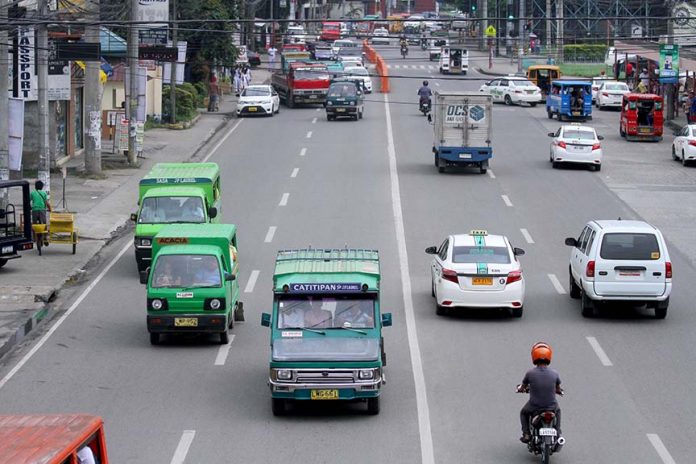
The jeepney strike failed to paralyze public transportation in Davao City as most drivers and operators opted to ply their usual routes on Thursday.
The city government also provided about 20 buses to transport stranded commuters while the Land Transportation Franchising and Regulatory Board (LTFRB) also deployed additional buses.
However, on initial assessment by the Davao City Transport and Traffic Management Office, 70 percent of the total number of public utility jeepneys and 80 percent of the total number of taxicabs are still on the road and running as of 7 a.m.
The supposed strike is an attempt of the transport group Piston to sway the LTFRB and the Land Transportation Office (LTO) not to implement the jeepney modernization plan by phasing out public utility vehicles that are 15 years and older under the Traffic Crises Act of 2016.
But Edwin Fernandez, spokesperson for Transmision-Piston in Southern Mindanao said Thursday’s protest action was not a transport strike but a Transport Caravan wherein drivers and operators of 21 drivers and operators’ organizations under Piston have to participate.
The convoy will proceed from Magsaysay Park to LTFRB then LTO passing through major streets in this city.
If all drivers would participate in the activity, Fernandez said it will paralyze 60 percent of the public transportation.
Fernandez said they are opposing the jeepney modernization program and the Traffic Crises Act of 2016 because small operators and drivers cannot afford to buy units with each costing over a million pesos.
Under the rule, Fernandez said they are required to have a capital outlay of at least PHP7 million to acquire 20 new units and get a franchise by 2018 which they have to increase to 40 units by 2019.
Fernandez said the banks can only offer PHP80,000 for a loan, so they are still required to raise more than a million pesos for each unit which they cannot afford unless the government would shoulder 70 to 80 percent of the amount to acquire new units. They will also be burdened by high-interest rates.
He said they would lose their income especially for drivers who rely only on daily income.(PNA)






